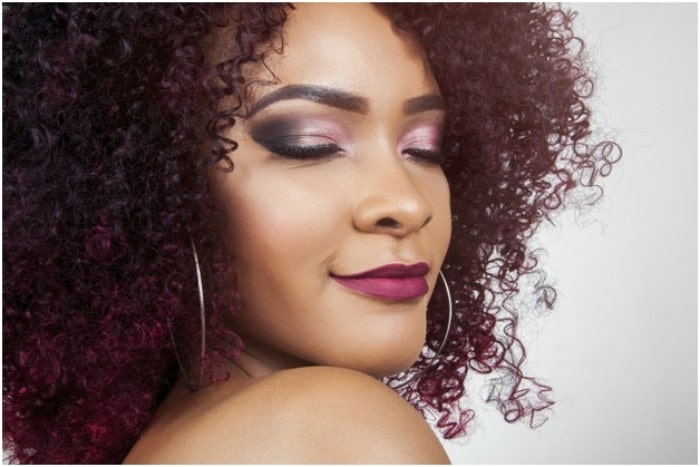
Doing makeup is about beauty, that’s true—but it’s so much more than that. Doing makeup is also about self-care. Don’t forget that a big part of putting on makeup is caring for your skin and making sure that it’s healthy and looks great underneath all that makeup.
No need to fret. It’s not as challenging as you might think, and we’ll be glad to help you out.
Here are seven healthy makeup habits to follow for great skin and beautiful looking makeup.
- Take the time to enjoy your routine.
Your makeup routine shouldn’t feel like a chore. It should be an enjoyable activity, so feel free to take your time with it. Give yourself enough time every morning to take a shower, clean your skin, and prepare yourself for your makeup routine.
Even if you’re not a morning person, do your best to wake up an hour or two early so that you don’t have to do your makeup in a hurry. You’ll enjoy your routine more, do a much better job on your makeup, and feel more confident in yourself.
If you don’t normally wake up early to have ample time for your makeup routine, it may time some getting used to. But, once you see the clear difference in your skin and your makeup, you’ll know that it’s worth extra effort.
- Start with a clean base.
Before applying any sort of makeup, your skin should be completely clean. When showering, use a gentle cleanser on your face. This removes excess oil and impurities on your skin without drying it out.
It’s also a good idea to exfoliate every inch of your skin in the shower with a loofah or exfoliating scrub. Doing so gets rids of dead skin cells, improving the texture of your skin and giving it a natural shine that will surely complement your makeup.
Cleansing and exfoliating your skin ensures that you have clear and immaculate skin before putting on makeup. Never apply makeup on dirty skin. It will clog your pores and spread bacteria on to your makeup tools.
- Use a moisturizer.
Applying moisturizer to your face before you put on makeup is a vital part of your makeup routine. A good moisturizer makes your skin smoother, which allows for a much more even application of your favorite foundation. Applying moisturizer also hydrates the skin on your face and makes it look more radiant, which prevents makeup from getting cakey even after a long day.
Use moisturizers that are hypoallergenic and non-comedogenic. Look for a lightweight moisturizer that contains hydrating agents like vitamin C. Lastly, avoid oil-based or cream-based moisturizers.
- Use sunscreen.
Everybody needs a little sunlight in their lives. After all, the sun is your best source of vitamin D. However, prolonged exposure to UV radiation can cause premature aging of your skin, making you look older than you are.
To prevent this, use sunscreen on your face and all exposed skin 15 minutes before sun exposure. Choose a product that is waterproof or waterproof, protects against both UVA and UVB rays, and has a sun protection factor (SPF) of 30 or higher.
- Check the expiration date of your makeup.
According to the American Optometric Association, 9 out of 10 use cosmetics past their expiration date. This can be harmful to your skin, so don’t make the same mistake—especially when it comes to eye makeup.
Makeup has certain preservatives. Once the makeup expires, these preservatives may no longer be effective. This makes the makeup more prone to bacteria or fungi buildup, which can cause skin or eye infections if the bacteria on the makeup enters your eyes.
Avoid any skin issues by always reading the labels and checking the expiration date of your makeup products. You can usually find the expiration date on the back of the makeup packaging. Dispose of any products that are already expired
However, with all the products you own, you might think it’s impossible to keep track of all the different expiration dates. One remedy is to make a little note on the makeup container that is highly visible, that way, you always know when that specific product is about to expire.
- Disinfect your tools.
Another thing that can breakouts or skin infections is dirty tools. Your makeup applicators are breeding grounds for bacteria, so disinfect them at least once a week. Clean your makeup sponges and brushes using water and gentle soap. In addition, cover your brushes when you’re not using them.
Cleaning isn’t enough, though. You also need to replace your makeup tools regularly. Dispose of brushes and replace them with new ones every six to twelve months. In terms of sponges, the rule of thumb is to throw them out and replace them once they’re already the same color as your makeup.
- Remove all your makeup before going to bed.
Make sure that you remove all of your makeup before going to sleep at night. This prevents your pores from getting clogged and causing breakouts. The last thing you want is to wake up in the morning with acne because you didn’t remove your makeup the night before.
It may be tempting to just plop down on your bed, sleep, and forget about your makeup after a hard day at the office. However, you would just be doing unnecessary damage to your skin, so always remove your makeup before going to bed. When you’re done removing your makeup, wash and clean your face using a gentle facial cleanser.
Removing all your makeup and cleaning your face before going to bed allows your skin to heal itself while you sleep. Do it every day and you’ll see that the benefits far outweigh the costs.
Conclusion
Doing your makeup is about looking your best outside and feeling your best inside. You can enjoy both of these benefits by establishing a safe and healthy makeup routine. Practice the habits outlined in this post and you’ll see a huge difference in your skin and the way your makeup looks.
Author Bio:

Jericho Gonzales is a Content Marketing Specialist at Lens.com. Writing is his passion, and he specializes in tech-based and consumer product-based writing. His other passions lie in the worlds of fantasy and science fiction. When he isn’t busy with wordcraft, he loves to immerse himself in those worlds through novels, video games, TV shows, or movies.
